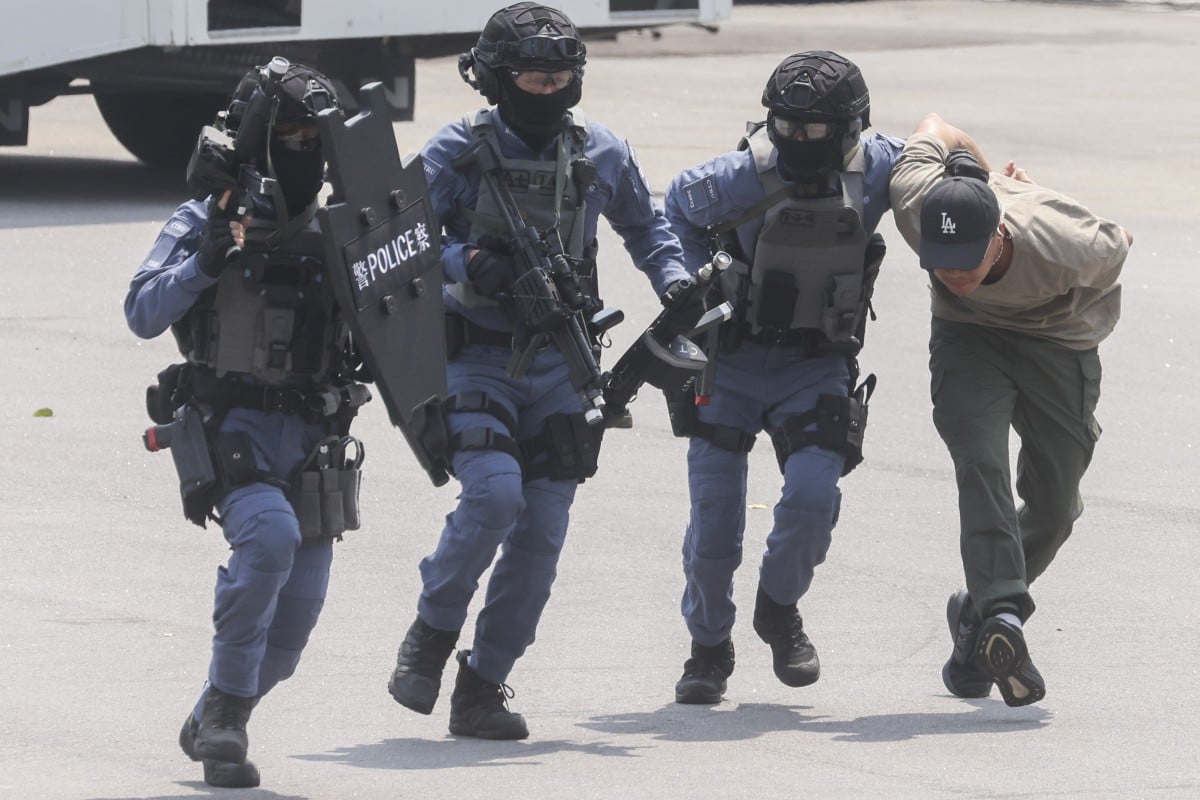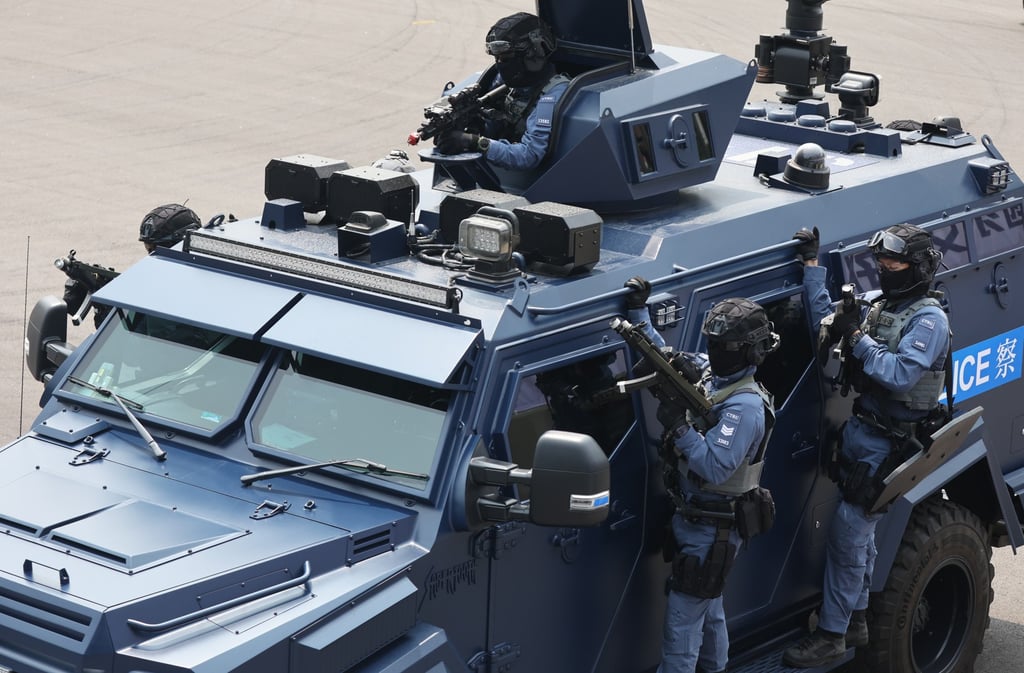SVA interviewed by SCMP re: the first anti-terror drill supervised by the Hong Kong Chief Executive, John Lee Ka-chiu
Hong Kong to conduct first anti-terror drill supervised by John Lee on Thursday
Exercise serves as a warning to terrorists and reassures Hongkongers that the government is fully equipped to respond to threats, analyst says

Hong Kong authorities will conduct their first counterterrorism drill overseen by the city’s leader on Thursday afternoon, featuring a live broadcast and the largest-ever public participation in such an exercise, the Post has learned.
More than 500 government officers will participate in the exercise, with 200 members of the public observing and taking part, according to a source. The drill, code-named “Bravelight”, will be held at the Kai Tak Cruise Terminal.
“This exercise will mark the first activation of the Emergency Monitoring and Support Centre, with Chief Executive John Lee Ka-chiu and Secretary for Security Chris Tang Ping-keung personally overseeing the operation,” the source said.
About two weeks ago, Lee chaired the first meeting of a high-level counterterrorism steering group and subsequently ordered a large-scale attack simulation to be held this month.
Following the meeting, a government spokesman said that officials had reviewed global and local threats, as well as authorities’ directions and strategies for counterterrorism efforts.
The source added that those mobilised for the drill would include officers from the six disciplined services, government chemists, and staff from the Hospital Authority and the Security Bureau. More than 100 residents would also take part in the exercise, with another 100 observing on-site.
“These residents will include groups from all walks of life, ranging from the youth to retirees,” the source said.
“[Authorities] hope to convey counterterrorism awareness to the public via a realistic drill, increasing their capability to respond to a terrorist or extremist attack.”
After the mock attack, representatives from police, immigration, customs, fire and correctional services are expected to introduce their counterterrorism gear to the participants from the public.
The drill will also be the first counterterrorism exercise to be broadcast live, with the source saying that the aim was to raise people’s awareness of how to respond in the event of a terrorist attack.

Lau Siu-kai, a consultant for the semi-official Chinese Association of Hong Kong and Macau Studies think tank, said that although the city had not faced a very serious threat of a terrorist attack, the drill would help the government accomplish several goals.
“On one hand, the drill serves as a warning to terrorists that Hong Kong will not yield to their demands. It also reassures the people of Hong Kong that even if the city encounters a terrorist attack, the government has enough ability to tackle it through inter-department coordination,” he said.
“More importantly, it will put the country at ease, as Hong Kong will neither allow terrorists to use the city to harm China nor permit them to threaten national security.”
Lau also said that with Lee overseeing the drill, its scale would be much larger, enhancing its deterrent effect against terrorists. It would also demonstrate the government’s strong commitment to anti-terrorism work.
Steve Vickers, chief executive officer of Steve Vickers and Associates, a specialist political and corporate risk consultancy, said that officials would need to foster coordination, communication and effective decision-making among various layers of the mechanism in the drill.
“Not creating a bureaucratic bubble will be critical and [that] will take time to iron out,” Vickers said.
He said that while Hong Kong had been fortunate over the years regarding terrorism, geopolitical issues in the South China Sea or over the Taiwan Strait stood at a “somewhat elevated risk”.
“In the event of hostilities actually breaking out in those areas, then Hong Kong as part of the Greater Bay Area or national response would need to be prepared,” Vickers said.
The chief executive’s steering group sits at the top of a three-tier anti-terrorism mechanism introduced in last year’s policy address, designed to boost the city’s defences against evolving global threats.
The group is responsible for setting out directions and strategies for the city’s terrorism prevention work, while the second tier, chaired by Tang, focuses on coordinating various government bodies.
The third tier consists of seven working groups led by the disciplined services, incorporating members from various government departments.
These groups cover intelligence, public education, information security, critical infrastructure, import and export of goods, immigration controls, and legislation.
A police force spokesman said that various policy bureaus had begun counterterrorism work under the framework.
The Home and Youth Affairs Bureau has helped boost promotion and education on terrorism risks.
The Health Bureau, Education Bureau and Labour and Welfare Bureau have encouraged professionals to monitor for potential terrorism cases and report them. The Commerce and Economic Development Bureau has also bolstered import and export controls over goods that could be used in operations.
The Interdepartmental Counterterrorism Unit, comprising personnel from the city’s disciplined services, mobilised 400 officers to conduct a simulated attack at Kai Tak Youth Sports Ground during a packed match in December last year.
Additional reporting by Harvey Kong
